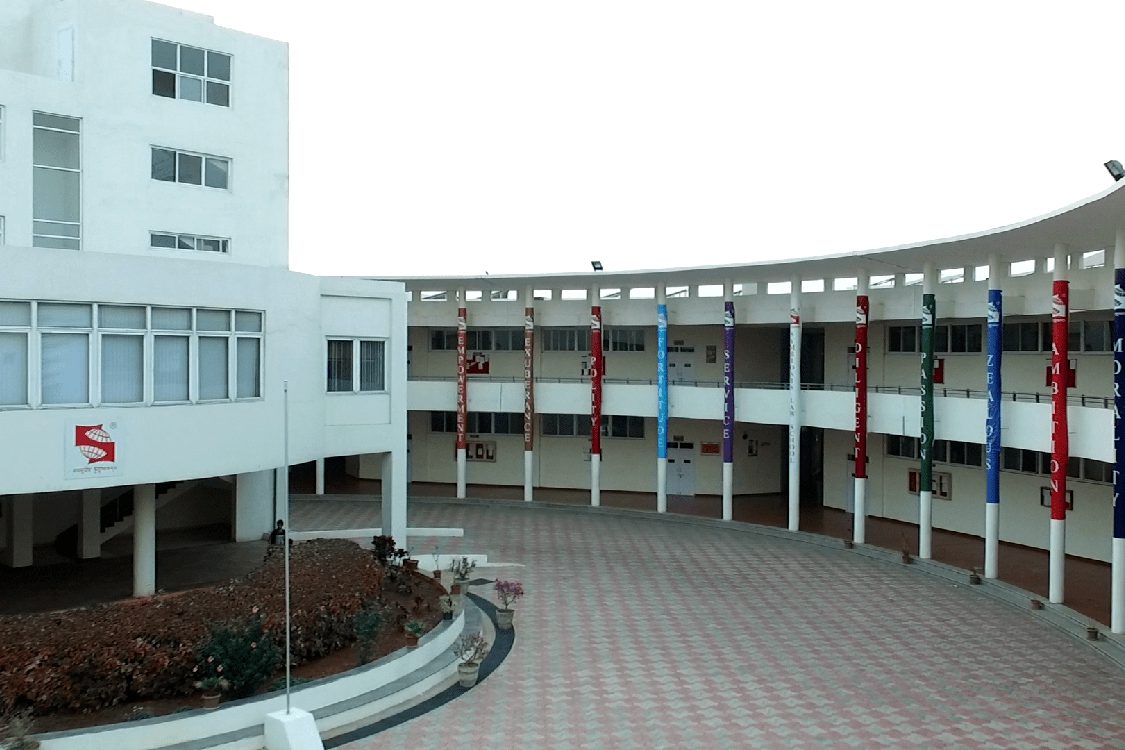Arguments against the #MeToo movement converge into a familiar line of reasoning: that due process must be followed, and that the present moment allows for false accusations to tarnish the careers and reputations of those accused. Due process refers to any institutional mechanism set up to address complaints in a formally recognised manner; a case in point as to why due process not only fails
Upon finding that Symbiosis Law School mishandled sexual harassment complaints, two students of the institute- Apoorva Yarabahalli and Snigdha Jayakrishnan- wrote to Maneka Gandhi, Minister of Women and Child Development, and other organisations including the National Commission for Women on April 1st, 2018, stating their grievances with the institute’s response to sexual harassment complaints. The Registrar responded to the letter on May 3rd, nearly a month after the institute was asked to look into the issue, in which it was mentioned that one of the accused, Assistant Professor Srinivas Methuku, was severely reprimanded and that the other complaints were misconstrued as sexual harassment. Between these two dates, the two students were manhandled by security guards when they attempted to leave the hostel upon not being given an out pass, for which they were summoned to a disciplinary hearing while they were not in the city.
Following the paltry response by the administration, the students decided to make a Facebook post with an anonymous screenshot detailing Methuku’s behaviour. They were then asked to take the Facebook post down by the Student Affairs Head, and an internal enquiry was constituted months after the legally stipulated time period. College authorities had meanwhile been allegedly threatening students to unlike the post in question, and were coerced into making statements against the two students. After succumbing to public pressure, Prof. Methuku was suspended without notifying the complainants in question. On the 25th of October, 2018, the Dean then threatened rustication of Apoorva and Snigdha if they did not take the Facebook post down.
#MeToo has shown that the ‘process’ in due process is flawed, and is a reminder that no institutional mechanism and tool is infallible the way due process advocates seem to suggest.
Finally on October 26th, the two students were evicted from their hostels on the basis of a series of vague justifications citing “past misconduct.” Following a petition on Jhatkaa.org, repeated phone calls and emails to college authorities, a Twitter storm, and a viral comic illustration on social media, SLS-H Internal Complaints Committee recommended the dismissal of the professor in question. As the issue presently stands, Apoorva and Snigdha have filed a writ petition in the Telangana High Court to fight for their rightful place back into college. They have missed four months of classes, and will be unable to take their annual exams. They continue to spend their time, energy and money on fighting their case, the next hearing for which is on 1 March, 2019.
Also Read: #MeToo: How Ashoka University Has Let The Accused Professor Go Scott-Free
Instances such as these are not new. The particular trajectory of events in question throws light upon why #MeToo began as a movement, and why it continues to be a trailblazing pathway for addressing sexual harassment in a climate where it is not taken seriously. Not only is sexual harassment not taken seriously; institutions that are gender-blind in design are positioned to actively accommodate it. What Symbiosis Law School’s actions have shown is an insidious pattern in which women are actively discouraged from speaking truth to power by negating their experiences in entirety. Women who do come forward are used as props to silence others who may consider doing the same, and the system continues to protect its predatory individuals unless public outrage threatens to taint its reputation.
#MeToo is the mediating force for this public outrage, when due process fails and there is no recourse to justice. And #MeToo has shown where this failure comes from – a culture (rape culture) which brazenly allows sexual harassment to deter women from pursuing their goals or everyday lives in peace. The trauma does not end with the incident, it endures through the aftermath in which due process is resorted to, and in which due process discredits and silences instead of taking swift and firm punitive or remedial measures. #MeToo has shown that the ‘process’ in due process is flawed, and is a reminder that no institutional mechanism and tool is infallible the way due process advocates seem to suggest. Reform occurs from within the flawed entity in question if it recognises itself as transient and in flux, subject to changes demanded from it in order to accommodate everyone as equal citizens pursuing their equal rights.
With respect to sexual harassment, therefore, due process has favoured the architects of the oppressive culture in the space within which it is called upon to mete out justice.
That due process is hailed as the holy grail of justice is a gross misrecognition of the fact that due process is not universal, and in this case has allowed thousands of voices go unheard by suppressing them. This then raises the question of why due process does this – and the answer can be found when one deconstructs it by identifying it as defined by particular forces, at a particular time, within certain structural conditions, and most importantly, through exclusion. With respect to sexual harassment, therefore, due process has favoured the architects of the oppressive culture in the space within which it is called upon to mete out justice. Due process, in the case of Symbiosis Law School and others, is defined by powerful administrators and bureaucrats who set the framework of rules for the space, and is wielded unilaterally in order to impose a structure which benefits those in power, or which sustains existing power relations and hierarchies.
With mounting evidence that proves the extent to which due process is systematically aligned against women who resort to it, due process itself becomes the card that is played in order to discredit a movement like #MeToo, which was born out of its ineffectualness.
What then becomes clear, when one opens the can of worms that is due process, is that patriarchy colludes with any institutional or informal space in order to make it inaccessible to women who threaten to disrupt the roles that were designed for them by this system. Sexual harassment, and institutional lethargy towards addressing it as a problem, are some of the tools used by agents of such
Also r
#MeToo, therefore, is a moment in history which is post-due process. It comes as the only channel left available in which voices of dissent are amplified, and predators face public humiliation when all other resorts to justice fail. It recognises that due process is designed for exclusion if it does not take survivor accounts at face value. It recognises that due process involves casting doubt on the complainant and giving the accused the benefit of doubt. A situation involving sexual harassment cannot always have tangible proof to be presented before the due process machinery. Echoing the jurisprudential catchphrase of ‘innocent until proven guilty’ can therefore not be applied in such a scenario, and due process fails if it does not recognise the fundamentally asymmetric power dynamics and gender inequality embedded into every nook and cranny of society, in the public and private spheres, and in the law itself. Due process, in other words, is not undermined- it is unavailable.
Also read: Despite UGC Mandate, DU Seems To Be Neglecting Grievance Redressal | #MakeMyCampusSafe
We stand in solidarity with Apoorva and Snigdha, – it is outrageous the kind of bullying and penalisation they’re undergoing simply for speaking up. Sign and share Jhatkaa’s petition here to amplify public pressure on Symbiosis to implement the ICC recommendations and re-admit the women.
Featured Image Source: SLS Hyderabad
About the author(s)
Rohitha Naraharisetty is a student of Development Studies at IIT Madras. She is interested in gender studies, aspires to smash the patriarchy, and is terrible at writing clever bios.




